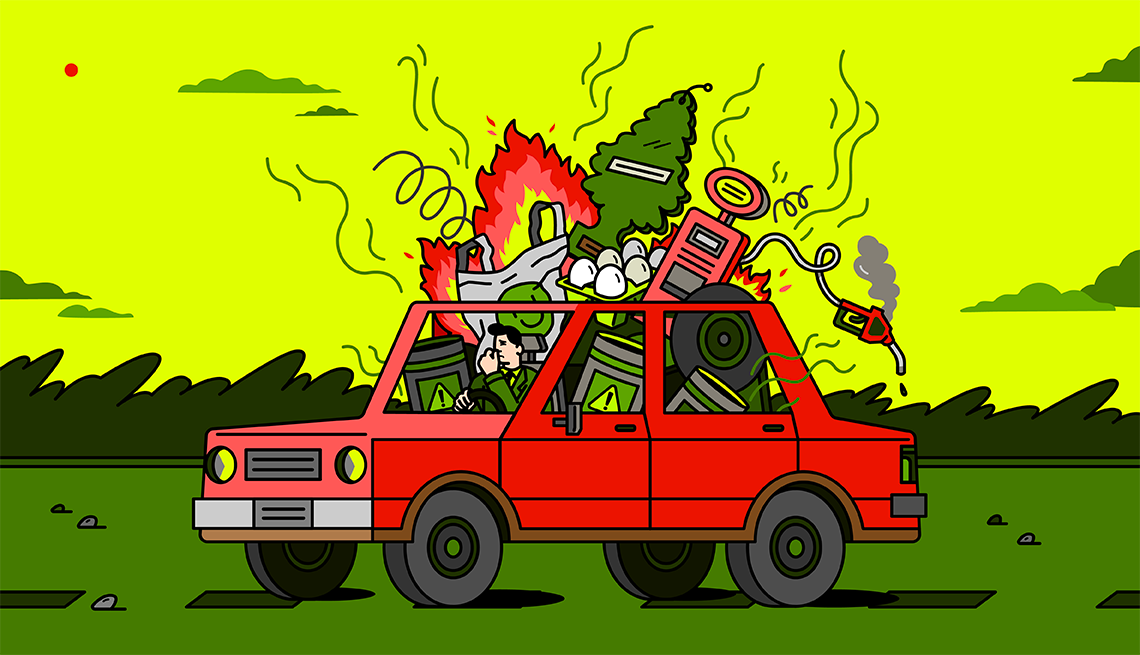AARP Hearing Center


“What’s that smell?” is not something you want to hear anywhere really, but definitely not when you’re driving down the road. It might not only be hard to escape but could mean something is wrong with your car.
Older drivers tend to drive older cars, according to the Insurance Institute for Highway Safety, and vehicles can accumulate life smells (leaky milk from the last grocery store trip, dogs, grandkids, etc.). But some smells can be an early warning sign of potentially dangerous car trouble, says Jake Horvat, director at GM Parts Direct.
Here’s what you need to know.
Rotten eggs
The offensive sulfur scent could be a sign of trouble with the catalytic converter — the part of the exhaust system that’s responsible for reducing emissions.
When it’s not working, it allows harmful gases to escape into the atmosphere, says Duane “Doc” Watson, technical trainer at Bosch Mobility Aftermarket, a company that sells diagnostic and in-shop equipment for vehicles. Not only is this bad news for the environment, it could be bad for you.
Your car could also emit a rotten egg scent when the engine uses too much fuel.
What to do: If the smell is prevalent, Watson suggests scheduling a diagnostic appointment within days to prevent further damage.
Burning rubber
AARP Smart Driver™ course
Learn safe driving strategies and you could earn a discount on auto insurance. Find a location.
The acrid smell could mean your tires are under-inflated, says Kyle Parman, manager of RNR Tire Express in Ocala, Florida.
“Under-inflated tires are one of the main reasons for tire failures and blowouts,” Parman says. “[Maintaining the right tire pressure] can keep major accidents from happening and keep you safe on the road.”
What to do: The moment you smell burning rubber, exit the freeway and find the nearest gas station to check your tire pressure. Inflating the tires to the right pressure can be a DIY process. Check your car owner’s manual for the exact tire pressure number for your vehicle. Use a gauge to test the pressure. Reinflate using an air machine found at most gas stations.




































































More From AARP
Tips to Find the Best Car for You
From making sure the screen text is large enough to having power seats, here’s what older drivers should look for
AARP Smart Guide to Cleaning Your Car
45 tips to properly clean your vehicle — inside and out — like a proRecommended for You